Crisis Intervention & De-escalation Training | The EDGE Approach Curriculum
Looking for the CCIS Certification?
Certified Crisis Intervention & De-Escalation Training (CCIS I & II) is offered live online.
Growth Central Training offers an evidence-informed crisis intervention and de-escalation training program designed for behavioral health professionals, law enforcement, educators, crisis responders, and healthcare teams. Our trainings focus on trauma-informed communication, behavioral crisis response, and practical skill application to improve safety and outcomes in high-intensity situations.
Developed over years of field-tested application, this training and curriculum are grounded in neuroscience, trauma-informed care, and interpersonal neurobiology. Participants can apply this course toward certification as a Certified Crisis Intervention Specialist I (CCIS-I) or Certified Crisis Intervention Specialist II (CCIS-II) through the National Anger Management Association (NAMA).
What is Crisis De-escalation?
Crisis de-escalation is the practiced, intentional process of reducing emotional intensity and physiological arousal during a behavioral health or mental health crisis. It involves evidence-informed communication strategies that help restore safety, connection, and choice so individuals can return to self-regulation.
De-escalation is not about controlling, coercing, or overpowering behavior. Instead, it focuses on calming the nervous system and supporting individuals in high-intensity situations toward stability and safer outcomes.
What makes the CCIS EDGE Approach so different...
The CCIS EDGE Approach to De-escalation is more than a training—it’s a complete framework for understanding, navigating, and transforming moments of crisis into opportunities for connection and clarity.
While many crisis de-escalation models stop at situational response, the EDGE Approach goes deeper—into the emotional, physiological, and relational aspects of crisis. It empowers responders to manage their own internal state, understand the dysregulation in others, and bring both into regulation through intentional connection.
Whether you're responding in the field, working in schools or shelters, supporting families, or mentoring peers—this method is accessible, applicable, and transformative.
The EDGE Curriculum: A Three-Part Framework
The Crisis Intervention Workbook and Curriculum: EDGE Approach to De-escalation is the foundation of this training. It guides learners through the three essential dynamics of crisis response:
1️⃣ Dynamics of Self-Regulation
This section focuses on the responder. How do our personal histories, cultural environments, and family systems shape our reactions in crisis? You’ll learn how to recognize and regulate your own nervous system—building emotional resilience, managing triggers, and embodying calm. Topics include:
🧠 Brain science of the stress and trauma response systems (fight, flight, freeze)
🧘 Responder wellness and burnout prevention
📊 Exploring values, choices, and unconscious patterns
🧒 ACEs (Adverse Childhood Experiences) and their impact on adult functioning
2️⃣ Dynamics of Dysregulation
This section turns to the person in crisis. Why do people escalate—even when we’re trying to help? Through a trauma-informed lens, you’ll explore emotional dysregulation, attachment systems, and behavioral patterns that drive crisis behavior. Topics include:
📚 Attachment theory in crisis intervention
🌿 Polyvagal theory and nervous system mapping
🔄 The psychology of aggression, shutdown, and defiance
🗺️ Identity, perception, and emotional misattunement
3️⃣ Dynamics of Co-Regulation
Here, the curriculum converges into practical, relational tools. Co-regulation is where healing begins. You’ll learn the four-step EDGE verbal sequence and how to use presence, language, and attunement to de-escalate and connect. Topics include:
💬 The EDGE verbal de-escalation language sequence
🧭 Interpersonal Neurobiology in real-time with co-regulation
👂 The brain science of: Attunement, active listening, proxemics, and pacing
🎯 "Yield Theory", relational safety, and trust-building under pressure
"If you want to improve the world, start with making people feel safer." — Dr. Stephen Porges
Crisis De-escalation Training Options
Certified Crisis Intervention Specialist I (CCIS-I)
🖥️ Coming soon. Self-paced curriculum with 2 hours of live supervision. Ideal for learners seeking a strong foundation in the EDGE Approach, particularly those not working in immediate crisis-response environments.
Certified Crisis Intervention Specialist II (CCIS-II)
📅 Two-day live training (Zoom or in-person) with scenario-based learning and intensive coaching. Best suited for professionals actively working in behavioral health, crisis response, or peer support. CCIS II training includes CCIS I.
Customized Group Trainings
🏢 Available for agencies, schools, hospitals, shelters, law enforcement teams, and more. Bring the EDGE Approach to your organization with tailored scheduling and learning objectives.
All Trainings Include:
📜 National certification through NAMA
🧠 Science-based curriculum grounded in trauma and neurobiology
👥 Real-time interaction, coaching, and skills practice
🖥️ Delivery via live Zoom or in-person (by request)
To learn more about our instructors, visit the About Us page. To begin your journey with EDGE, explore the trainings below.






